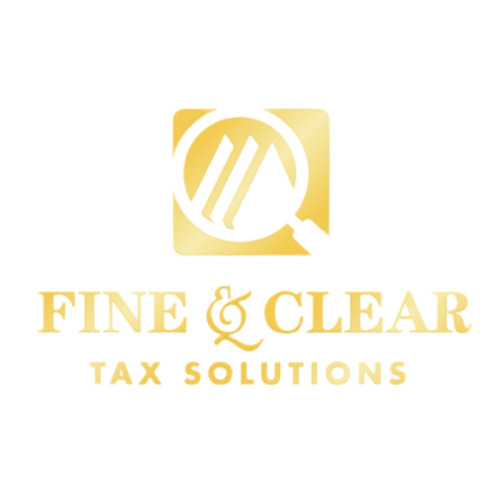A tax audit can feel intimidating, but it doesn’t have to derail your life or your business. In reality, an audit is simply the IRS’s way of verifying that your tax return is accurate — and with the right preparation, you can navigate this process smoothly.
At Fine & Clear Tax Resolution, we believe that clarity and preparation are the foundation for successfully managing an audit. Let’s break down what you need to know — and what you can do — if you’re facing IRS scrutiny.
How Does an IRS Audit Work?
An audit is an official examination of your financial records to ensure that what you reported on your tax return matches supporting documentation.
Audits generally fall into three categories:
- Correspondence audits: Handled by mail, typically requesting clarification on one or two items.
- Office audits: Conducted in an IRS office, involving a broader review.
- Field audits: The most serious, where an IRS agent visits your home, business, or tax professional’s office for an in-depth inspection.
Each type of audit comes with its own level of intensity and document requirements.
What Triggers an Audit?
Many taxpayers wonder: why me? Audits can be random, but there are common factors that increase audit likelihood:
- Large deductions relative to income
- Business losses reported over consecutive years
- Significant charitable contributions
- Cash-intensive businesses (e.g., restaurants, salons)
- Inconsistencies in reported income vs. third-party reporting (like W-2s or 1099s)
While these are legitimate items, they can still attract IRS attention — and even the most careful taxpayer may eventually face a review.
How to Prepare for a Tax Audit
Preparation is key. Here’s what to do as soon as you receive an audit notice:
- Understand what the IRS is requesting: The audit letter will specify the year(s) and the exact areas under review.
- Gather all supporting documentation: Receipts, logs, invoices, bank statements — anything that substantiates the amounts claimed.
- Organize your records clearly: Well-organized documentation makes the audit process smoother and faster.
- Review your tax return: Make sure you understand every item the IRS is examining so you can explain it confidently.
Even if documentation is incomplete, it’s important not to guess — work with a professional to explore legitimate ways to reconstruct records.
What to Expect During the Audit
When the audit begins, the approach you take matters as much as the records you provide:
- Be respectful and professional: Auditors are doing their job; treating them with courtesy can set a positive tone.
- Answer questions carefully: Provide honest, direct answers — but avoid volunteering extra information that may broaden the audit’s scope.
- Keep your representative involved: If you hire a tax professional, they can attend meetings and correspond with the auditor on your behalf.
The goal is to stay on topic and keep the audit focused on the issues identified in the IRS letter.
Your Rights During an Audit
You have important protections as a taxpayer:
- Right to representation: You can authorize an attorney, CPA, or enrolled agent to act on your behalf.
- Right to clarity: If you don’t understand a question or request, you can ask for clarification.
- Right to appeal: If you disagree with the outcome, you can appeal within the IRS or in U.S. Tax Court.
Knowing and exercising these rights ensures fairness and can help you avoid costly missteps.
The Audit Conclusion: Possible Outcomes
Once the audit is complete, you’ll receive a determination letter. The IRS will either:
- Accept your return as filed (no changes).
- Propose adjustments that you agree to (additional tax due).
- Propose adjustments that you disagree with (giving you the right to appeal).
If additional tax is due, penalties and interest may also apply — but there are often ways to negotiate or reduce these amounts.
The Value of Professional Guidance
Audits can be complicated, particularly when records are incomplete, deductions are challenged, or the auditor expands the scope of review. Having a professional by your side means:
- Expert preparation
- Direct communication with the IRS on your behalf
- Knowledge of negotiation strategies and appeals
- Peace of mind that your case is being handled correctly
Going Forward: Audit-Proofing Your Finances
Even after your audit is resolved, it’s wise to improve your recordkeeping practices to minimize audit risks in the future:
- Maintain receipts and documentation for at least 3–7 years.
- Keep separate records for business and personal expenses.
- Avoid estimates; use precise figures and proper documentation for deductions and credits.
- Ensure you report all income sources.
Protect Yourself and Resolve Your Audit with Confidence
An audit doesn’t have to be an ordeal — but it does require careful handling and proper support.
At Fine & Clear Tax Resolution, we help taxpayers manage IRS audits professionally and efficiently, keeping the process clear and minimizing stress. We protect your rights, help you organize your records, and negotiate directly with the IRS on your behalf.
Call today for a free consultation — let’s make sure your audit is handled properly and your financial future stays on track.

